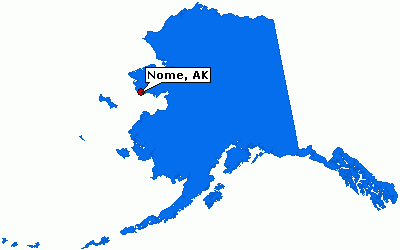Below is an interview conducted with me by Mr. Emad Aysha, an insightful, British-Egyptian academic and a gifted writer. He’s an avid fan of science fiction with an expertise especially on Arab and Muslim sci-fi. What’s special about this interview is that it has made me think about implementing more cultural elements into my future work (and perhaps writing more in my native tongue, Turkish). You can find the full interview by scrolling down. If you’re short on time, you can also visit “The Liberum“, where the interview has been published for a concise version… or just take a digital stroll onto their homepage to access loads of pretty cool articles and interviews on various subjects. Enough with the talk… and onto more talk. Here comes the interview:
The Talk of Turkey – Baris Cansevgisi on Cultural Rapprochement and Sales Tactics for SFF in the Global Village
This is a talk with a literary counterpart of ours, Baris Cansevgisi, from Turkey this time round. He specializes in the short end of fiction – novellas, short stories, flash fiction – and in both science fiction and horror. Even his SF has a psychological and philosophical bent to it. He’s clearly the thinking man’s genre writer, never content to stick to action and adventure and preferring the journey inwards as well as outwards. (For a comprehensive overview of his work, including essays and commentary, please visit his website, and for one of his delightfully whimsical stories please check out “The Night Couple”).
Interview conducted by Emad Aysha
Dear Mr Baris, it’s always great to talk to fellow authors and share trials and tribulations. To date I have published interviews of literary figures from Egypt, Iran, Lebanon, Algeria, China and Yemen. I’m sure Turkey is a galaxy unto its own and you are our magic door into it. And let me commend you on your skill and dexterity with English.
Please give us the lowdown on your good person and what attracted you to genre literature, your favourite authors, and what made you want to write it in English specifically?
Watching popular SF series like V,Blake’s 7, Star Trek and Doctor Who as well as reading books like Dune (Frank Herbert), The Time Machine(H.G. Wells) and Flowers for Algernon (Daniel Keyes) while growing up, one tends to fall in love with SF. That’s basically what happened to me. Adding my interest in psychology, sociology and anthropology into the mixture, I have begun to explore endless possibilities that one can create in SF in terms of world-building and plotting.The genre is fueled from scientific knowledge but does not require the writers or the readers to be hardcore science fans. SF is limited only by the writer’s creativity and the reader’s imagination. I mostly write SF in English as I find the language to be more settled for this genre. Some SF terms does not sound quite right in Turkish, but perhaps that’s because there has been limited SF works in Turkish when compared to English. Besides, more people get to read my work when I write in English.
To date you have published with Sky Island Journal and Lucent Dreaming Mag, or are self-published. Am I correct in assuming that writing is more of a hobby for you than anything else? Can a Turkish author – genre or otherwise – make a decent living just from writing and publishing? And have you thought of teaching SF?
Writing has to stay a hobby for me for the time being. Apart from a few mainstream and well-known authors, I believe Turkish writers do not earn enough to make a living by sticking only to writing. Not at least until they have traditionally published a book or have a solid fan base just like Orhan Pamuk, Elif Şafak and Ahmet Ümit.As for me, I have a regular day job and I can only lead a nocturnal life when it comes to pursuing my passion. I do earn from writing, but that’s mostly in the form of ghostwriting.When it comes to teaching SF, I have never taught SF as a lesson on its own. However, I tend to use SF as background if there’s a willing group of students when I teach English at university.
Are you a member of Bilimkurgu Kulübü, the premier sci-fi association in Turkey? Do they have a national writer’s federation in Turkey and do you have to have a minimum of three published works to be a full member? (They do in Egypt).
No, I am not a member of Bilimkurgu Kulübü. Sadly, due to my hectic teaching schedule, I can hardly find the time to attend their activities, which mostly take place in Istanbul. This is something I currently lack in my life– participating in social activities (in person) with like-minded people, networking and sharing ideas of course. I believe there’s a national writers’ federation in Turkey called Türkiye Yazarlar Birliği, but I don’t have much information about them as I mostly write in English. However, I know that in order to become a member of the association, it is required to have been writing in one or more periodicals for at least five years or to have published at least one work (in Turkish of course).
What is your fanbase like (age, gender) and what subgenres do you write in – cyberpunk, steampunk, social science fiction, military SF, etc.?
Apart from family and friends, my fan base mostly consists of women between the ages 30 to 70. I believe this type of fan base is mostly attracted to softer SF with a stronger emphasis on human psychology, which is basically what I mostly write about:Social and psychological effects of SF elements like time travel or parallel worlds on ordinary people. Besides social science fiction, I also write short pieces of apocalyptic SF and stories about lucid dreaming, which I try to integrate into SF settings.
On the topic of military SF, there is the famous 2004 novel Metal Fırtına (or Metal Storm) by Orkun Uçar and Burak Turna – I’d read about it in a US foreign policy magazine. Were people in Turkey genuinely scared that the Americans would invade, just like they did Iraq? And how has the Metal Fırtına series fared critically and commercially?
First of all, let me say that Metal Fırtına is considered to be Political/Military Fiction as the novel lacks common sci-fi elements (not even laser rifles or aliens). The book, having a plausible plot of the US forces invading Turkey, had initially made it a best-seller amongst the Turkish population.
Well, some people were scared at first because it’s the first novel of its kind… but the feeling transformed into anti-Americanism shortly after. I guess it was seen as something that could easily happen at the time. And we had the example of Iraq. The core idea was very credible. However, it seemed unlikely for US invasion (ground) forces to be able to move through the mountainous Turkey in 2-3 days… This and some other aspects caused pauses in the suspension of disbelief, I guess…
Metal Fırtına did not fare well critically as it had been criticised about the writers lacking knowledge on military strategies, the proper militaristic jargon or even geographical knowledge of Turkey. Later on, the writers decided to continue the series on their own, both publishing a set of different Metal Storm follow-ups (Orkun Uçar – 4 more books) and (Burak Turna – 6 more books).
Is this the sci-fi action equivalent of Ertuğrul or Valley of the Wolves?
In that sense, yes, they are very similar. But nearly every action-adventure Turkish series or film are similar in that sense. Have you seen Tarkan movies (played by Kartal Tibet)? Or Dünyayı Kurtaran Adam (The Man who Saved the World)… I am ashamed of this film as it is considered to be one of the worst SF movies in history.
What’s the anime scene like in Turkey? Are they just dubbed or does Turkey have its own distinctive sci-fi cartoon brand? Is cyberpunk popular in general?
Anime has been gaining popularity especially among the younger generation in Turkey in the last couple of decades. I am really happy about this as I am an anime fan and now it’s easier to access a wide range of anime (and manga) both in English and Turkish. Up to this date Turkey has produced children’s cartoons focusing on traditional folk stories, but we do not have a sci-fi cartoon brand of our own. There have been a couple of attempts, but I am certain this will change soon. Although being a fairly new genre for the Turkish society, Cyberpunk is getting more and more popular these days and I have started hearing about some cyberpunk anime projects. But, they are still rumours as of this day.
Here’s a wild economic question. A whole generation of Egyptians and Arabs have been raised watching Turkish soap operas and period dramas, and you can find a goodly number of translated texts by Orhan Pamuk and Elif Shafak in Egyptian bookstore. Do you think Turkish SF (in translation) would sell well here?
I don’t see why not. Egyptian and Arab readers are more likely to find common cultural elements like religion, geography and social life in Turkish SF stories. There are few but some good published Turkish SF writers such as Müfit Özdeş (short stories), Aşkın Güngör, Zühtü Bayar and Sadık Yemni (along with fantasy).
Finally, what are your future plans and what kind of cooperation would you like to see from your counterparts in the Arab world? I’d like to ‘think’ we have much to learn from each other and can help each other out. What about you?
My future plans? Well, I have so many projects in mind but so little time to complete them all. Firstly, as I’m a pantser and not a plotter, I have a lot of short stories that need to be heavily edited by me. I also have an incomplete novel, which had been untouched for the last five years. I want to finish that. I also want to write more in Turkish to see how well I can fare. And, finally, work on a space opera TV series script I have been thinking of lately. For the near future, I think I’ll focus more on my blog and keep on writing short pieces on anything that ticks my brain.
I would love to connect with SF writers from the Arab world to exchange ideas and more. Wouldn’t it be great if we all worked on an SF short story anthology focusing on a certain topic?
Thank you!
Emad Aysha is a member of both the Egyptian Society for Science Fiction (ESSF) and Egyptian Writers’ Union.






























